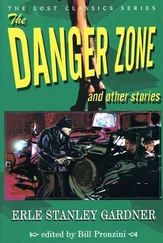Seeing that the floor of the house was covered by a soft, thick woolen blanket, Béla Bundasian tactfully left his shoes on the threshold. So he was in his socks when he happened to step on Connie Illafeld’s bare feet. And since that felt good, he left his feet right there. The heady smell of pasta emanated from the walls, from the handcrafted rustic furniture, from the handwoven fabrics. Connie Illafeld smelled of pasta, too — her downy underarms and her pearly thighs — and even though she was old enough to have been Béla Bundasian’s mother, this scent of unbridled desire welled up out of her as if from a loaf of bread rising in the oven. In a matter of minutes they were pawing each other like mad.
In one of her drawers Connie Illafeld kept a dried herb — the flowers, leaves, and crumbled stems of sweet woodruff. She now sprinkled this concoction all over the woolen blanket, and within intoxicating fragrance the two of them lolled about nonstop for two or three weeks, fogging her windows up with the vapors of true passion. Much later — by which time everything was long over — I peered into Béla Bundasian’s diary, which had chronicled those weeks and months of love. That’s how I know all this. He wrote that getting his fill of her was impossible, it only took a glance at her and he’d be overwhelmed with the sensation that lurking even between her toes was a hungry little pussy, so it was best to just gulp the whole of her down like a glass of water. And yet — by a secret, circuitous route — the end of the love affair was of course already at hand.
Back in those days I rarely saw my adopted son. When he traveled to Moldavia for sheet music paper — his occupation involved copying scores — he’d vanish for weeks on end. As fond as I was of the boy, I let him do whatever he wanted, figuring that he wasn’t my own blood, after all, and could go through his baptism by fire: I resolved to intervene only in an extreme situation.
And that time finally came. During one of his extended absences, a stranger came in the form of a gray-haired gentleman with yellow eyes and a narrow mouth who left a package wrapped in newspapers and tied up with string. No sooner had this gray-haired man left than I opened the bundle. It held notebook pages written in Polish: a mimeograph. I naturally burned them at once, mixing the ashes in water and pouring them all over the garden. At that point, however, it didn’t matter one bit. Béla Bundasian had gotten mixed up in something.
After the Polish notebooks incident, my adopted son never showed up again. Granted, I’d suspected from the start that something was up, but where could I have searched for him?
I boarded the intercity train to Moldavia, and after one night of travel in bone-chilling cold and the dizzying smell of coal smoke, I arrived in Punta Sinistra. The wind died down by evening and the warm scent of hay rose from the barns and settled over the surrounding rimy meadows.
And yet it wasn’t a particularly pleasant feeling that came over me — no, in the light of the train cars rolling away toward the tunnel I noticed immediately that Connie Illafeld’s door was festooned with official-looking stamps and that a Red Cross ribbon hung from the knob — anyone visited by the Red Cross could not be in good straights. The Red Cross on a door or a gate was a clear sign that something was wrong, terribly wrong.
Not that the tunnel watchman was in an especially talkative mood, but he did say this much: Cornelia Illarion had indeed lived in the house over there. Yes, lived , not lives. In fact, hardly a couple of days or weeks earlier, two gentleman had come with official papers declaring her insane. And they had taken her off to that renowned asylum, Colonia Sinistra, right away.
As for my adopted son, Béla Bundasian, I finally met up with him here in the Dobrin forest district only four years later, in the house of the meteorologist, Géza Hutira. It turned out that on the same day that Cornelia Illarion was taken away, his longtime benefactor, Colonel Velman, was waiting for him by the evening train. The colonel was an unsolicited, uninvited good friend who at times assumed the role of confidential well-wisher by looking Béla Bundasian up and providing him with various sorts of advice. On this occasion the Colonel didn’t mention the Polish notebooks, but warned that he could count on some unpleasant consequences on account of his dubious romantic dealings. Word had it that he’d been spending lots of time in the provinces of late — sleeping in the home of a female individual unaccountable for her own actions — he may have been in Connie Illafeld’s bed — and this was very close to what the law called rape. He, as Béla Bundasian’s longtime benefactor, would try his best to smooth things over, so maybe he’d be let off easy, with just a couple years of internment.
This was all I knew about Connie Illafeld when I saw her name on that file folder, but soon enough I spread her documents out in front of me. All these details — nice and slow — went through my mind as I sat there, accompanied by the fact that the woman had wound up among the bears on the reserve at the behest of Colonel Coca Mavrodin.
Béla Bundasian lived there, too, but way higher up, above the tree line, at the meteorologist’s place. He’d learned to read the instruments and the weather vanes and even during holidays or when he got leave every six months or so, he never budged from there. At most he would pay a visit to the bear wardens to play dice, nine-men’s morris, and blackjack.
“You’ll see, this will all be for the best,” said Colonel Titus Tomoioaga.
“But still,” I began, and then paused, unsure of what to say.
“What is it,” Colonel Titus Tomoioaga asked, now looking me over suspiciously. “What’s your problem?”
“Nothing.”
Once again I glanced at the folder, then asked for permission to go to the restroom, which was at the end of the hallway. Of course I was full of curiosity to see her for myself — my adopted son’s enchantress, this stunning woman I’d often imagined, that zesty little dish who, as I read Béla Bundasian’s diary, without ever having actually seen her, I’d almost coveted for myself.
Success was not in the cards. I opened the door to the hallway and saw, on the bench where people waited to be called inside, a gray-skinned, coughing, slumping, stretched-out fellow in a miner’s helmet. Beside him was a figure cloaked in a threadbare quilted jacket, praying away, whose clasped hands and face were almost completely covered by a knotted mass of hair.
“Listen,” I said, turning back to Colonel Titus Tomoioaga, “I don’t know what sort of woman we’re talking about. There’s not a single lady waiting out there — maybe she took off?”
“She’s there, all right.”
“There’s only a miner sprawled out on the bench along with another fellow with hair all over him. No one except them.”
“Well, but she’s there, in any case.”
Connie Illafeld was indeed waiting in the hallway. Colonel Titus Tomoioaga soon summoned her. At first he called her name, but then he realized that maybe she wouldn’t take that in, so he stepped out into the hallway and, placing a hand under one of her arms, helped her inside. It was the hairy figure.
From between the strands of silky black hair that covered her face her green eyes glowed. She did not know her own name. Trying my best to be good-humored about the situation, I sought out Colonel Titus Tomoioaga’s eyes to exchange a knowing glance. And I even forced a smile or two, as one often does in the presence of a person not quite right in the head.
“People forget everything in there,” explained Colonel Titus Tomoioaga, “everything trickles out of a person, like shit.”
Читать дальше












